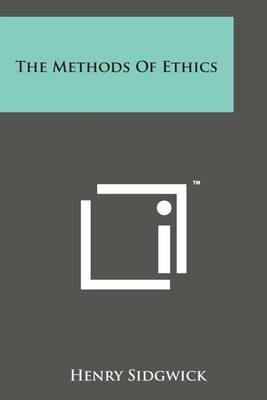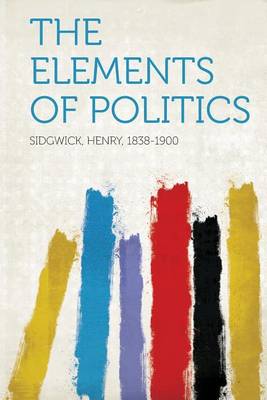Cambridge Library Collection - Philosophy
5 total works
One of the most influential of the Victorian philosophers, Henry Sidgwick (1838-1900) also made important contributions to fields such as economics, political theory, and classics. An active promoter of higher education for women, he founded Cambridge's Newnham College in 1871. He attended Rugby School and then Trinity College, Cambridge, where he remained his whole career. In 1859 he took up a lectureship in classics, and held this post for ten years. In 1869, he moved to a lectureship in moral philosophy, the subject where he left arguably his greatest mark when he produced this work, regarded as his masterpiece. Published in 1874, the book argues the utilitarian approach to ethics, and a systematic and historically sensitive approach to ethical research that influenced utilitarian philosophers well into the twentieth century. It remains a valuable introduction to the philosophy, practice and history of ethics. This reissue includes the 1877 supplement.
One of the most influential of the Victorian philosophers, Henry Sidgwick (1838-1900) was the author of the masterpiece of utilitarianism, The Methods of Ethics. He also made important contributions to fields such as economics, political theory, and classics. An active champion of higher education for women, he founded Cambridge's Newnham College in 1871. He attended Rugby School and then Trinity College, Cambridge, where he remained his whole career. In 1859 he accepted a lectureship in classics, and held this post for ten years. He then changed direction and in 1869 took up a lectureship in moral philosophy. In this book, published in 1886, Sidgwick gives an objective summary of ethical philosophies throughout history. He considers general issues in ethics and then gives a detailed critique of the work of major philosophers from early Greek thinkers through to his nineteenth-century contemporaries.
Henry Sidgwick, (1838-1900), philosopher, classicist, lecturer and fellow of Trinity College, Cambridge, and supporter of women's university education, is well known for his Method of Ethics (1874), a significant and influential book on moral theory. First published in 1883, this work considers the role the state plays (and ought to play) in economic life, and whether economics should be considered an Art or a Science. Sidgwick applies his utilitarian views to economics, defending John Stuart Mill's 1848 treatise of the same name. The book calls for a return to traditional political economy by eliminating 'needless polemics'. Sidgwick also outlines the need to bridge the gap between his analytical or deductive method and the inductive method employed by Mill's critics, the new generation of economic philosophers including John Elliot Cairnes and William Stanley Jevons. The second edition, reissued here, was published in 1887.
One of the most influential of the Victorian philosophers, Henry Sidgwick (1838-1900) also made important contributions to fields such as economics, political theory and classics. A proponent of the utilitarianism of Jeremy Bentham and John Stuart Mill, which he analysed in his classic work The Methods of Ethics (1874; also reissued in this series), he later turned to the practical side of politics in this work, published in 1891. His aim was to have a 'rational discussion of political questions in modern states', and he offers a thorough examination of Victorian politics, beginning with a discussion of political theory before moving on to more concrete matters such as property and law. The later chapters discuss the function of government through themes such as procedural matters, international affairs, war, political parties, and public participation, giving a comprehensive account of both ideas about and the functioning of late-nineteenth-century government.
Lectures on the Ethics of T. H. Green, Mr Herbert Spencer, and J. Martineau
by Henry Sidgwick
Published 1 December 2011
One of the most influential of the Victorian philosophers, Henry Sidgwick (1838-1900) also made important contributions to fields such as economics, political theory, and classics. An active champion of higher education for women, he founded Cambridge's Newnham College in 1871. He attended Rugby School and then Trinity College, Cambridge, where he remained his whole career. In 1859 he took up a lectureship in classics, and held this post for ten years. In 1869, he moved to a lectureship in moral philosophy, the subject where he left his greatest mark. Published posthumously in 1902, this work is Sidgwick's expository critique of the leading schools of thought that had emerged to rival his philosophy of utilitarianism, which he had presented previously in his masterpiece The Methods of Ethics (also reissued in this series).


